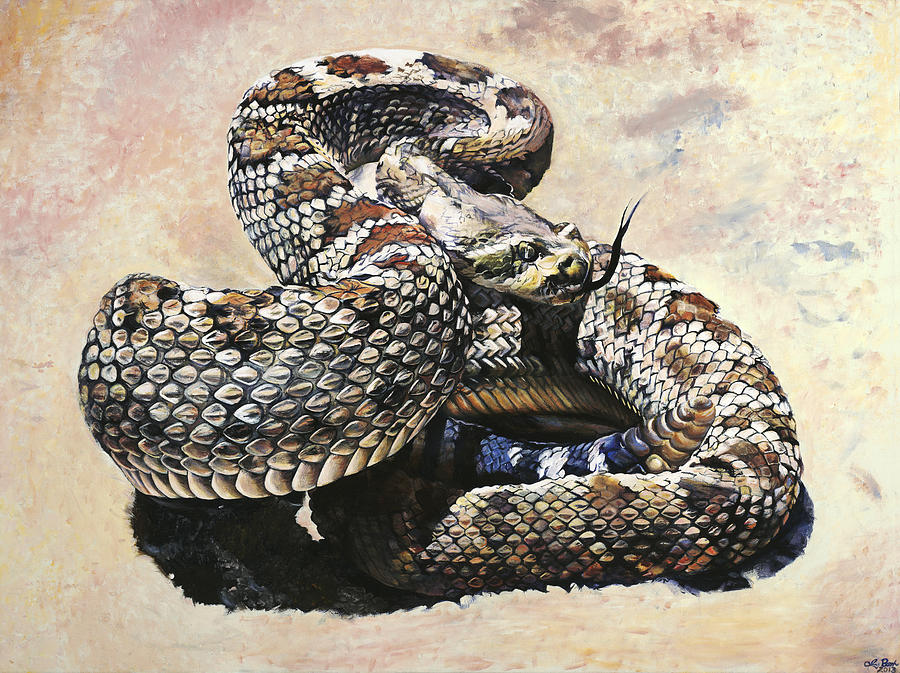Translated from the French by Dodzi Edem Amenyo

Image used for representation.
—Miségli loo…[1]
—Egli né va…[2]
The tale took off, rose, and landed in a village. In this neighborhood, there lived a king named Effiagan. He was a monarch that was really esteemed by his people. In the same village, there lived a great seer, by the name of Boko. This Voodoo priest used to consult oracles and make predictions about the future.
One day, oracles predicted the imminent death of the king. When informed, the villagers mocked the soothsayer. Nevertheless, the seer, confident about himself, informed the notables of these alarming predictions, namely Assafo, the king’s Chief Security Officer, Tsami, his spokesman, and Fiato, his spiritual father.
Then, with these notables, Boko went to inform Effiagan:
—Venerable King! All my respect! I have a message from the oracles for you!
—What is this message Boko?
—My King, you will be bitten by a snake! And this will be fatal!
—A snake! Effiagan exclaimed, amazed.
—This is not possible, says a notable treating Boko like he was crazy.
—A snake? Impossible! You fool! I have never heard such nonsense.
—How will it reach our King? You know very well that there is no man who is better protected than the King, another notable added.
—This will happen at noon when some big gray clouds gallop towards sunset, Boko clarified. In seven days, exactly.
—Well, said the Chief Security Officer, our honorable King will be carried in his palanquin that day, from half past eleven, and we’ll see where your famous snake will come from and reach him.
The King, trusting in his entourage, didn’t believe a word of this revelation. The predicted day arrived very quickly. Almost like it was ahead of it. In the morning, they held a great banquet for the King and his court. Time was passing like an hour-consuming bogeyman.
At half past eleven the king was carried by his usual chair bearers. Effiagan wore his best clothes. He was cheered by the entire village. Surrounded by all his chiefs, guards, and wives, the king looked good and serene. Everyone seemed alert. They walked the monarch as to move him away from danger.
But at noon, King Effiagan exclaimed anxiously:
—Ouch! A snake bit me!
—What? But there is no snake here! A guard pondered.
In the time needed to get off the chair holders, the King passed away, with a dead snake in his big loincloth!
—What had happened? A woman in the audience asked.
Ahon had caught a rattlesnake. The curved claw grabber had terrifying talons. His hooked beak was very sharp. The bird went very high in the sky with the reptile, then dived straight towards its nest, when suddenly his dying prey escaped its clutches and fell on the King. The snake, wounded by the Eagle, died after biting the king. The body of the snake lay on the defunct monarch.
The whole village echoed with cries!
They buried the king with the greatest sadness.
From now on, in order to avoid a similar fate to any of their future kings, the village elders enthroned King Boko the great seer.
The Voodoo priest thus became king and continues to consult the oracles, and listen to them; and, it seems that he is still on the throne to this day. The King is dead, long live the King!
And, ever since that time, the following saying is told to posterity: Afébokɔ medzena aménu o, no one is a prophet at home and kings are not ordinary men but wise visionaries, capable of saving themselves from tricky situations.
Notes:
[1] Listen to the tale.
[2] Please, tell the tale.
Also, read ten Greek poems by Yannis Yfandis, translated into English by Urania, and published in The Antonym:
Follow The Antonym’s Facebook page and Instagram account for more content and exciting updates.



























0 Comments